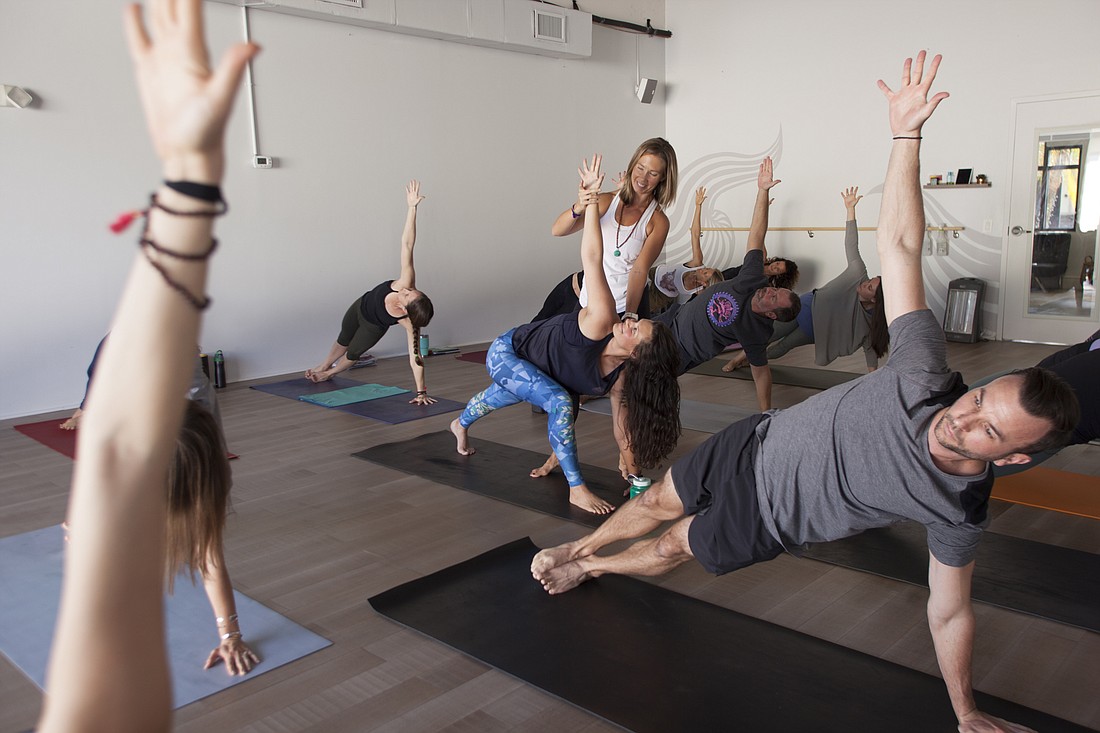- July 26, 2024
-
-
Loading

Loading

Mention yoga, and images of toned bodies in pretzel-like postures might come to the mind, but yoga teachers say there is more to the practice than flexibility.
“There's the myth that [yoga is] just about flexibility,” said Rebekka Mars, a teacher at The Yoga Shack. “It's not all about getting flexible. Now it's kind of like a perk, but it's not everything. It's really more about opening up the energy in your body.”
During her 12 years as a certified yoga teacher, Mars said she has always promoted focusing on what’s best for your body rather than watching what someone else can do.
“One of my favorite quotes from one my teachers is, ‘How's that working out for you?’ … [and] 'Are you seeing the results you want?'” she said. “There is an important piece of just pausing and self-reflecting on why you’re doing it.”
Taking time to reflect on why a pose is being done and if it is serving your body in the moment is an important part of the practice, she said.
“Having that self-awareness, which is a big part of yoga, is being able to self-reflect, grow, learn and self-study,” Mars said. “Doing that will help you keep looking at these parts of you.”
Lynn Burgess, owner of Yoga From the Heart said she often hears students say, “I thought yoga was supposed to hurt,” which she chocks up to the “Western American mentality of no pain, no gain.”
“That's one of our big teachings is, if it hurts, we shouldn't be doing it. If it's uncomfortable, then that's different from hurt,” she said.
But the practice of yoga offers a variety of options for people looking for different results. For example, if you lead a sedentary life, then a flow class, also known as vinyasa yoga, might be better suited for you. Flow practitioners move through each pose by connecting their breath and movement. It is good for those looking to strengthen muscles, build endurance and improve cardiovascular health.
Whereas if you’re a marathon runner, then a restorative class provides the rest your body needs to recover. These classes are often floor-based with a large emphasis on stretching over strengthening, and they are good for those looking to gain flexibility, rehab an injury or slow down a busy mind.
To discover what type of yoga class best suits your body's needs, Burgess advises first talking with a yoga teacher.
“This is a collaboration. Let's figure out what works best for you,” she said. “Really educating people I think is the best way to go and then continuing a dialogue [with questions like], ‘How did that class work for you?’”